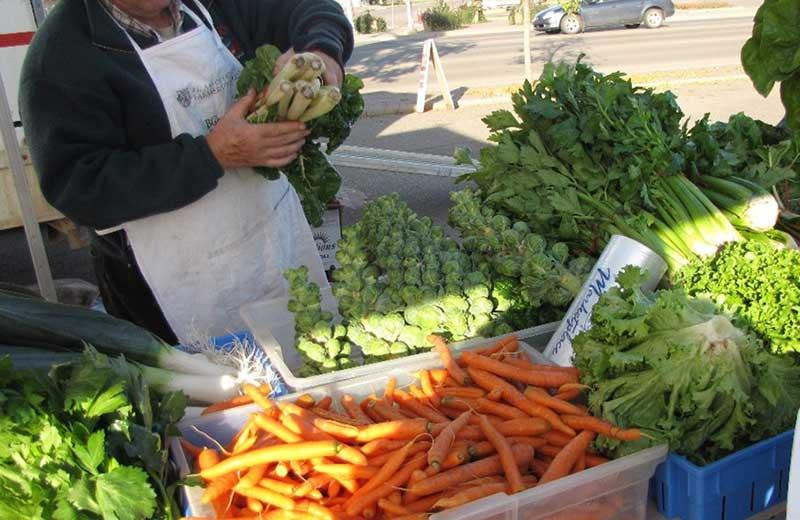For many of us, living in a healthy way for ourselves and for the planet is a priority. However, as we modify our routines to be more health- and planet-friendly as a community, are we thinking about the use of commercial tobacco products?
It’s important to note that when we raise awareness about the devastating health effects related to tobacco use, or refer to World No Tobacco Day (WNTD), we are referring to commercial tobacco products ( i.e., cigarettes, cigars, chewing tobacco). It should not be confused with traditional use of tobacco, where in many Indigenous cultures, tobacco is considered a sacred plant that’s been used for ceremonial/healing purposes for centuries.
Last year, WNTD had a goal to raise awareness about the environmental impacts of commercial tobacco products. In a previous NH story, we learned that an estimated 4.5 trillion cigarette butts are littered yearly across the world; waste that contains over 7,000 toxic chemicals!
The theme of 2023’s WNTD is “we need food, not tobacco.” This global campaign aims to raise awareness around the environmental and social concerns with commercial tobacco farming, and promoting the growth of sustainable, nutritious crops instead of tobacco for commercial use.
Key facts about commercial tobacco farming:
- Tobacco was first produced commercially around the 17th century.
- Tobacco is grown as a cash crop in over 100 countries.
- Tobacco farming for commercial use is most popular in low- to middle- income countries with mild and sunny climates.
- Currently, China is the largest producer of tobacco for commercial use in the world.
- The use of pesticides and fertilizers exposes farm workers to hazardous chemicals.
- A tobacco farmer who plants, grows, and harvests tobacco for commercial use may absorb as much nicotine as found in 50 cigarettes in a single day.
Environmental concerns:
Commercial tobacco use is a major public health threat and continues to be the leading cause of preventable death worldwide. Tobacco farming for commercial use affects the environment, and impacts global food security in three key ways:
- High water use: In the process of growing tobacco for commercial farming, a significant amount of water is needed. In local communities where there may be a drought season, this can put severe stress on local water reserves.
- Contributes to deforestation: Around 3.5 million hectares of land are destroyed each year to create space for tobacco farming for commercial use. Tobacco farmers rely on fuel wood to assist in curing the tobacco leaves, which is further damaging to the environment. Deforestation is one of the largest contributors to carbon dioxide (CO2) emissions and climate change, and at least 200,000 hectares of forest are lost every year for tobacco farming and curing. The World Health Organization (WHO) estimates that tobacco farming is responsible for 5% of the total loss of forests in low- and middle-income countries, and it’s the main cause of deforestation in countries such as Malawi, Zimbabwe, and the Philippines.
- Degrades soil quality: Prime farming land that could be used to grow nutritious crops, is instead used to grow tobacco for commercial use. The tobacco plants then impact the soil by depleting it of important nutrients. It is hard to grow crops on land where tobacco plants were once grown, leaving farmers with no other options but to continue to work with the commercial tobacco industry for supply and demand.
Households worldwide should not have to worry about not having access to enough food due to lack of fresh produce grown by farmers. Tobacco farming for commercial use is taking away opportunities from farmers to grow nutritious, safe, meaningful crops across the globe, and further contributes to global food insecurity.
Social concerns:
According to the WHO, the tobacco industry will often contract farmers to grow commercial tobacco, provide them with the materials to start growing as a loan, but then farmers have a hard time making enough to pay back the loans. All this makes moving away from growing tobacco a very difficult choice for a farmer, even if they would prefer to grow food crops. Even worse, the farmer and their family’s health are at continual risk due to chemical pollution from handling the pesticides involved in the process of tobacco farming.
It is vital that we protect farmers and their families from the mistreatment the commercial tobacco industry holds over their livelihood. Yet another great reason to quit commercial tobacco products.
Remember, there is nothing good about commercial tobacco!
There are many reasons that support quitting commercial tobacco products, including consideration for the environmental impact and the mistreatment of the tobacco farmers. If you or someone you know is interested in quitting or decreasing their use, encourage them to talk to their primary care provider (such as a doctor or nurse practitioner). The following resources are also available:
- BC Smoking Cessation Program: BC residents can access 12 weeks of free nicotine replacement therapy (gum, patch, and lozenges) per calendar year through their local pharmacy.
- Talk Tobacco offers culturally appropriate support for quitting smoking, vaping and other commercial tobacco use to Indigenous people and communities.
- QuitNow offers free information, support, and counseling by trained professionals by phone, text, or email.














Comments